Dates enjoy immense popularity. People love their versatility. These sweet fruits boast a long history of consumption. Many cultures, including India, revere them. This article explores the diverse types of dates. It delves into their nutritional powerhouse. You will also learn about the extensive benefits of dates. We will uncover why khajur benefits are celebrated and examine dates nutrition in detail. Prepare to discover the delightful and wholesome universe of this ancient fruit.
What Exactly Are Dates?
What are dates? They are the delectable fruit of the date palm tree, botanically known as Phoenix dactylifera. Date fruit (khajur) is celebrated for its natural, intense sweetness. Its texture varies, generally falling into fresh/soft, semi-dry, or dry categories. People have cultivated dates for thousands of years across the globe. They hold a significant place in many traditions and cuisines, particularly in India, where they feature in various dishes and ceremonies. Many value dates as a natural sweetener. Understanding the difference between fresh dates vs dry dates helps in their culinary application, as fresh dates are more succulent while dry dates offer a chewier experience and longer shelf life.
Unveiling the Many Types of Dates
Many types of khajur exist, each presenting unique characteristics that set it apart. These date varieties differ in taste, texture, size, and even color. This section will introduce some of the most popular and commonly found different kinds of dates. We'll focus especially on those cherished in India, giving you a glimpse into the rich diversity of these sweet jewels. Discovering these popular dates in India can enhance your culinary experiences.
Medjool Dates: The "King of Dates"
What are Medjool dates? Medjool dates are large and boast a soft, succulent texture. Their flavor is often described as caramel-like. They have a striking amber to reddish-brown color. Originating from Morocco, these dates now also grow in the USA, Israel, and Jordan. Medjool dates nutrition highlights include being a good source of fiber and potassium. The primary Medjool dates benefits include providing a natural energy boost, supporting digestive health, and contributing to heart health. People enjoy Medjool dates in many ways.
- They are a delightful snack on their own.
- They can be stuffed with nuts like almonds or walnuts.
- They serve as a wonderful natural sweetener in various desserts. General nutritional databases indicate their richness in natural sugars and antioxidants. The best ways to eat Medjool dates truly depend on personal preference, given their versatility.
Deglet Noor Dates: The "Queen of Dates" or "Date of Light"
What are Deglet Noor dates? Deglet Noor dates are typically medium-sized. They have a semi-dry, firm texture, which makes them distinct. Their flavor is sweet with a subtle, pleasant nuttiness. These dates possess a beautiful, translucent light brown or amber hue. Algeria and Tunisia are their primary places of origin. In terms of Deglet Noor nutrition, they are a good source of fiber, potassium, and various B vitamins. Key Deglet Noor dates benefits include offering sustained energy and aiding digestion. Their firm texture makes them particularly good for baking. Common uses for Deglet Noor dates include incorporating them into baked goods like cookies and cakes, adding them to savory dishes, enjoying them as a snack, or mixing them into trail mixes for an energetic punch. They also contain beneficial antioxidants.
Ajwa Dates: The Holy Dates
Ajwa dates benefits are highly prized, making this variety quite special. These are small to medium-sized dates, recognized by their soft, chewy texture and dark brown, almost black, color. Ajwa khajur offers a mildly sweet taste with a distinct, rich flavor. They originate from Medina, Saudi Arabia, and hold considerable religious significance in Islam. Nutritionally, Ajwa dates are rich in minerals such as potassium and magnesium. They also provide good amounts of fiber, antioxidants like flavonoids, and selenium. Key benefits of eating Ajwa dates include supporting heart health, boosting the immune system, and aiding digestion. There's also traditional importance regarding Ajwa dates pregnancy benefits, suggesting they may be helpful in the later stages. People usually eat Ajwa dates as they are, particularly for their health-promoting properties.
Barhi (Barhee) Dates: The Honey Balls
Barhi dates benefits stem from their unique qualities and nutritional content. These dates are small to medium and typically round with thin skin. A fascinating aspect of Barhi dates is that people can eat them at different stages of ripeness. In the Khalal stage, yellow Barhi dates are crunchy and slightly astringent. As they ripen to the Rutab stage, they turn amber or brown and become soft and incredibly sweet, with a caramel or butterscotch flavor. The final Tamar stage is when they are fully dried and dark brown. Originally from Iraq, Barhi dates are now cultivated in other regions too. Barhi dates nutrition highlights include being a good source of fiber, iron, potassium, B vitamins, and antioxidants. Their primary benefits include promoting digestive health, providing energy, and supporting the immune system. People enjoy fresh Barhi dates especially in their unique Khalal (yellow) stage. Riper Barhi dates are excellent in smoothies and desserts.
Khalas Dates: The Quintessential Arabian Date
Khalas dates benefits make them a popular choice for daily consumption in many Gulf countries. These Arabian dates are medium-sized with a reddish-dark brown color. They are characteristically moist and sticky, offering a rich caramel flavor that many find delightful. Primarily originating from Saudi Arabia and the UAE, Khalas dates hold cultural importance, often served to guests with Arabic coffee. The Khalas dates nutrition profile shows they are a good source of fiber and natural sugars. They also contain essential minerals like potassium and magnesium. The key benefits of Khalas dates include providing a quick energy boost, supporting digestive health, and contributing to heart health support. Their appealing taste and texture make them perfect for snacking.
Other Notable Date Varieties (Briefly)
Beyond the widely known types, several other date varieties offer unique tastes and benefits. Sukkari dates, for instance, are exceptionally sweet and sometimes used to help with constipation. Kalmi dates benefits (also known as Safawi dates) include their dark brown appearance and traditional use for aiding weight gain and combating anemia. Piarom dates for diabetes management are sometimes suggested due to their semi-dry texture and relatively balanced sugar profile, making them a potentially better option for those monitoring blood sugar. Fard dates are another variety, often appreciated for their smaller size and rich flavor. Mazafati dates, commonly from Iran, are soft, dark, and sweet, enjoyed fresh. Khudri dates are a versatile, moderately sweet variety with a chewy texture. Exploring these Indian date varieties and others can add delightful new dimensions to your fruit intake.
Comparative Table of Popular Date Varieties
Understanding the differences between popular date varieties can help you choose the perfect one for your needs. Here’s a quick dates comparison table to compare dates:
|
Feature |
Medjool Dates |
Deglet Noor Dates |
Ajwa Dates |
Barhi Dates (Rutab) |
Khalas Dates |
|
Appearance |
Large, amber to reddish-brown |
Medium, light brown/amber |
Small-medium, dark brown to black |
Small-medium, amber/brown |
Medium, reddish-dark brown |
|
Texture |
Soft, succulent |
Semi-dry, firm |
Soft, chewy |
Soft, syrupy |
Moist, sticky |
|
Taste Profile |
Rich, caramel-like |
Sweet, slightly nutty |
Mildly sweet, distinct flavor |
Very sweet, caramel/butterscotch |
Rich caramel flavor |
|
Primary Origin |
Morocco, USA, Israel, Jordan |
Algeria, Tunisia |
Medina, Saudi Arabia |
Iraq |
Saudi Arabia, UAE |
|
Key Benefit |
Energy boost, digestive health |
Sustained energy, good for baking |
Heart health, immune support |
Digestive health, fresh eating |
Energy boost, everyday snacking |
|
Best For |
Snacking, stuffing, desserts |
Baking, cooking, snacking |
Health purposes, direct eating |
Eating fresh, smoothies, desserts |
Snacking, with coffee |
This table offers a simple guide. Remember, the best dates for snacking or other uses often come down to personal preference!
The Nutritional Powerhouse: What's Inside Dates?
The dates nutritional value is impressively high, making them a fantastic addition to a healthy diet. These fruits are primarily composed of carbohydrates, mainly in the form of natural sugars like glucose, fructose, and sucrose, which provide quick energy. A significant aspect of nutrients in dates is their dietary fiber content. Dates contain both soluble and insoluble fiber, crucial for digestive health. While not a primary source, dates also offer a small amount of protein.
Micronutrient-wise, dates vitamins and minerals are abundant. They are an excellent source of potassium, a mineral vital for heart health and blood pressure regulation. Dates also provide magnesium, important for muscle and nerve function, and copper and manganese, which are involved in various enzymatic reactions in the body. Vitamin B6, essential for brain development and function, and Vitamin K, crucial for blood clotting and bone health, are also present.
Furthermore, antioxidants in dates are plentiful. They contain several types, including flavonoids, carotenoids, and phenolic acid. These compounds help protect cells from damage caused by free radicals. General nutritional analysis shows that a 100g serving of dried dates is packed with these beneficial components.
Top Health Benefits of Eating Dates (Khajur Ke Fayde)
This section will explore the various health benefits of dates. We'll look at why khajur ke fayde are widely recognized and how dates good for health can be in numerous ways. Many positive effects come from eating dates benefits regularly and in moderation.
1. Excellent Source of Energy
Dates for energy are a well-known benefit. The natural sugars in dates, such as glucose, fructose, and sucrose, provide a quick and quite sustained energy surge. This makes them an excellent natural energy booster. Consuming dates pre-workout can fuel your exercise session, or they can be used post-workout to replenish energy stores. They are also great for combating afternoon fatigue. This is one reason people often consume them during periods of fasting to quickly restore vitality. Carbohydrates are the primary source of this energy, supporting overall energy metabolism.
2. Promotes Healthy Digestion and Relieves Constipation
Dates for digestion are highly effective due to their impressive fiber content. They contain both soluble and insoluble dietary fiber. This fiber in dates for gut health works wonders. Insoluble fiber adds bulk to stool, aiding its passage through the digestive system and preventing constipation. Soluble fiber dissolves in water to form a gel-like substance, which can help soften stool and also feeds the beneficial gut microbiome. Regular consumption of dates for constipation can therefore promote bowel regularity and support a thriving, healthy gut environment.
3. Rich in Disease-Fighting Antioxidants
Antioxidants in dates play a crucial role in protecting the body. Dates are packed with several potent types, including flavonoids, carotenoids, and phenolic acid. These compounds combat free radicals, which are unstable molecules that can cause cellular damage, leading to oxidative stress and inflammation. By neutralizing these free radicals, dates reduce inflammation and may help lower the risk of various chronic diseases. Research suggests that antioxidants contribute to preventing conditions like heart disease, certain types of cancer, Alzheimer's, and diabetes, making dates beneficial for dates for chronic disease prevention.
4. Supports Heart Health
Dates for heart health offer multiple advantages. The potassium in dates helps regulate blood pressure, a key factor in cardiovascular wellness. Magnesium, another mineral found in dates, aids in maintaining a healthy heart rhythm. The dietary fiber present in dates contributes to heart health by helping to lower LDL (bad) cholesterol levels. When dates lower cholesterol, it reduces a significant risk factor for heart disease. Furthermore, the antioxidants in dates protect against oxidative stress and inflammation, which are also implicated in the development of heart problems.
5. May Boost Brain Health
Dates for brain health show promising potential. The antioxidants found in dates can help reduce inflammation and oxidative stress in the brain. These factors are often linked to a lower risk of neurodegenerative diseases like Alzheimer's. Some studies, although often preliminary or animal-based, suggest that consuming dates may offer benefits for memory and learning capabilities. While more research in humans is needed to fully understand these effects, including dates as part of a balanced diet could contribute to maintaining good brain health and potentially reduce the risk of conditions like dates and Alzheimer's.
6. Strengthens Bones
Dates for bone health are beneficial due to their mineral content. Dates contain minerals like phosphorus, potassium, calcium, and magnesium, all of which are crucial for maintaining strong bones. These minerals contribute to bone density and structural integrity. Regular intake of these nutrients can help prevent conditions like osteoporosis, a disease characterized by weak and brittle bones. Vitamin K, also found in dates, plays a role in bone metabolism. Therefore, including dates for strong bones in your diet can support overall skeletal health and reduce the risk of dates and osteoporosis related issues.
7. May Help with Blood Sugar Control (When Consumed in Moderation)
Many wonder, are dates good for diabetics? Despite their natural sweetness, dates glycemic index (GI) is generally low to moderate. This is largely thanks to their high fiber content, which slows down the absorption of sugar into the bloodstream. This slower absorption helps prevent sharp spikes in blood sugar. Therefore, when eaten in moderation as part of a balanced diet, dates can play a role in blood sugar control and even in dates for diabetes management. It's crucial, however, for individuals with diabetes to practice portion control and consult their doctor or a dietitian.
8. Potential Benefits During Pregnancy and Labor
Consuming dates during pregnancy, particularly in the later stages, has been linked to several potential benefits. Some research suggests that eating dates may promote natural labor and reduce the need for medical induction. It's also thought that dates might potentially shorten the duration of labor. These effects are often attributed to certain compounds in dates that may mimic the action of oxytocin, a hormone involved in uterine contractions and cervical dilation. Ajwa dates for pregnancy are often specifically mentioned in traditional contexts for these benefits. While this is an area of ongoing research, and pregnant individuals should always consult their doctors for advice, the findings are quite interesting.
How to Choose, Store, and Incorporate Dates into Your Diet
Knowing how to eat dates, properly store them, and select the best quality can greatly enhance your enjoyment. This section provides practical advice on storing dates, selecting dates, and offers creative recipes with dates to easily add them to your meals.
Tips for Selecting the Best Quality Dates
When choosing good dates, look for ones that are plump and have an even color. The skin should be mostly intact, though some wrinkling is normal for many dried varieties. Generally, you want to avoid dates that look overly shriveled, have sugar crystals forming on the surface (this can indicate they are old, though some types are naturally more crystalline), or show any signs of mold. If buying fresh dates, like some Barhi varieties, they will have a smoother skin and a firmer texture compared to their dried counterparts. Good quality dates will have a pleasant, sweet aroma.
Proper Storage for Maximum Freshness
How to store dates depends on their type and how long you plan to keep them. Fresh dates, like yellow Barhi, are more perishable and should be stored in the refrigerator, where they can last for a couple of weeks. Most semi-dry and storing dried dates is easier; they can be kept in an airtight container in a cool, dark pantry for several months. For even longer storage, especially in warmer climates, keeping dried dates in the refrigerator or freezer will help maintain their keeping dates fresh quality and prevent them from drying out further or absorbing odors. Always ensure they are well-sealed.
Creative and Healthy Ways to Eat Dates (with Indian Ideas)
There are countless creative and healthy ways to eat dates. Date recipes span from simple snacks to elaborate desserts.
- Enjoy them as a standalone healthy date snack.
- Stuff dates with nuts like almonds or walnuts for a classic treat.
- Blend dates into smoothies or milkshakes; a date and banana smoothie is particularly delicious and offers dates with milk benefits.
- Chop dates and add them to oatmeal, cereals, or yogurt for natural sweetness and texture.
- Use dates as a natural sweetener in desserts. In India, they feature in kheer, laddoos, date rolls (khajur roll), and date syrup.
- Make homemade energy bars or energy balls using dates as a binder and sweetener.
- Add chopped dates to savory dishes. They can bring a delightful sweetness to some biryanis, tagines, or pair wonderfully with cheese platters.
- Prepare a tangy and sweet date chutney (khajur ki chutney). Learning how to use dates in cooking opens up a world of flavorful possibilities.
How Many Dates Should You Eat Per Day?
A common question is how many dates to eat daily. While dates are nutritious, practicing portion control is important due to their calorie and natural sugar content. Generally, consuming about 2 to 4 dates per day is a reasonable amount for most healthy individuals, depending on the date size and individual calorie intake needs as part of a balanced diet. Eating this amount can provide benefits without significantly impacting overall sugar content from the diet. However, if you are actively managing your weight or blood sugar levels, it's wise to be mindful. Eating too many dates could contribute excess calories. It's always best to consult a doctor or a registered nutritionist for personalized advice based on your specific health conditions and dietary requirements. Some guidelines, like those sometimes referenced by health bodies, suggest that a serving of dried fruit is around 30-40 grams.
Potential Side Effects and Considerations
While dates offer many benefits, there are potential side effects of dates and considerations to keep in mind, especially if consumed in excess or by sensitive individuals. Overeating dates can lead to weight gain due to their calorie density. For individuals with diabetes or insulin resistance, consuming large quantities might cause undesirable blood sugar spikes, despite their generally favorable glycemic index when eaten moderately. Though rare, some people might experience allergies to dates, or reactions to sulfites, which are sometimes used as a preservative in dried fruits. Suddenly increasing fiber intake by eating too many dates could lead to temporary digestive discomfort like bloating or gas. Also, individuals with kidney disease may need to monitor their date consumption due to the high potassium content, as their kidneys might not efficiently remove excess potassium. These dates disadvantages highlight why moderation is crucial, and understanding who should not eat dates in large amounts, or at all, is important for certain health conditions. Medical information resources often provide context on these matters.
Conclusion: Embrace the Sweet Goodness of Dates
In summary, dates are far more than just a sweet treat; they are a diverse, delicious, and remarkably nutrient-rich fruit. They offer a multitude of health and nutrition benefits, ranging from boosting energy and aiding digestion to supporting heart and bone health. Exploring the different varieties can be a delightful journey for your taste buds. We encourage you to incorporate these natural powerhouses into your diet in moderation to enjoy their wholesome goodness as part of a healthy lifestyle. The benefits of eating dates are clear, making them an excellent choice for healthy snacking with dates. Which type of date will you try first on your sweet adventure?
Frequently Asked Questions (FAQs) about Dates
Q1: What is the best time to eat dates?
The best time to eat dates can be in the morning for an energy boost to start your day. They also make a great pre-workout snack for sustained energy. Some people prefer to soak dates overnight and eat them in the morning for easier digestion. It's generally advisable to avoid eating large amounts of dates right before bed due to their sugar content.
Q2: Are dates good for weight loss?
Dates for weight loss can be beneficial if consumed in moderation. Their fiber content promotes a feeling of fullness, which can help control appetite and reduce overall calorie control. However, they are calorie-dense, so portion size is key. Some suggest that certain date types with potentially lower sugar or higher fiber, like Piarom or Fard, might be more suitable when managing weight.
Q3: Are dates good for weight gain?
Yes, dates for weight gain can be effective when included as part of a balanced, calorie-surplus diet. They are calorie density and nutrient-rich, providing energy and essential nutrients. Safawi or Kalmi dates are often traditionally suggested for individuals aiming for healthy weight gain. Combining dates with other nutritious foods can support this goal.
Q4: Can people with diabetes eat dates?
Yes, people with diabetes can generally eat dates, but moderation is absolutely crucial. Dates have a low to medium glycemic index and contain fiber, which helps slow sugar absorption. Piarom dates are sometimes specifically mentioned for diabetics. However, portion control is vital, and individuals with diabetes should always consult their doctor or a diabetes specialist to see how dates fit into their personal dietary plan.
Q5: Which type of date is the healthiest?
Determining the single healthiest dates is difficult as all best dates to eat offer significant nutritional benefits. Some varieties, like Ajwa dates, are particularly prized in traditional medicine for specific properties. Medjool and Deglet Noor are well-rounded nutritionally. Piarom dates are also noted for being very nutritious. The "healthiest" type often depends on individual needs and what specific nutrients (e.g., fiber, specific minerals, antioxidant levels) one is focusing on.
Q6: How many dates should I eat for iron/anemia?
Dates do contain iron, but the amount varies between types; Ajwa dates are sometimes noted for having a higher iron content. While dates can contribute to your overall iron intake, they are unlikely to be sufficient on their own to treat anemia. For managing anemia, it's essential to consume a diet rich in various iron sources and consult a doctor for proper diagnosis and treatment, which might include iron supplements.
Q7: Are dried dates as healthy as fresh dates?
Both dried dates vs fresh dates are healthy options. Dried dates are more concentrated in calories, sugar, and most nutrients because the water has been removed. This also gives them a longer shelf life. Fresh dates, like the yellow Barhi, have higher moisture content and are less calorie-dense per gram. The choice often depends on preference and intended use.
Q8: Can eating dates improve skin health?
The vitamins and antioxidants in dates may contribute to dates for skin health by helping to fight oxidative stress, which can damage skin cells. Good hydration and a balanced overall diet are more critical for skin health, but the nutrients in dates can certainly play a supporting role.
Q9: Do dates help with constipation in babies/toddlers?
Date puree or date syrup can sometimes help with constipation in babies (typically older than 6 months) and toddlers due to their fiber content. However, it must be given in very small, moderate amounts. It is crucial to always consult a pediatrician before introducing new foods like dates for baby constipation or using them for medicinal purposes.
Q10: What are the benefits of eating dates with milk?
Eating dates with milk benefits from being a traditional combination in many cultures, including India. This pairing provides the combined nutritional advantages of dates (energy, fiber, minerals) and milk (calcium, protein). It can be consumed as a nutritious drink or a strengthening snack, often believed to boost stamina and overall health.
Q11: Are there any specific dates recommended for athletes?
Yes, dates are often recommended for athletes. Their natural sugars provide quick and sustained energy, which is beneficial before, during, or after exercise. The potassium in dates also helps with muscle function and preventing cramps. Energy-dense varieties like Medjool are often preferred by athletes for a convenient fuel source.
Q12: Do I need to wash dates before eating?
It's generally a good idea to wash dates before eating, especially if you buy them loose from open bins. This helps remove any surface dust, dirt, or potential contaminants. Even packaged dates might benefit from a quick rinse, though they are often cleaner. It's a simple hygiene practice.
Q13: Can dates help in improving male fertility?
Some traditional beliefs and limited preliminary research suggest that dates for male fertility might offer benefits. This is often attributed to their rich profile of nutrients and antioxidants, which could potentially support reproductive health. However, more robust scientific research is needed to confirm these effects definitively.
Q14: What are organic dates, and are they better?
Organic dates are grown without the use of synthetic pesticides or fertilizers, following specific organic farming standards. Choosing organic may reduce exposure to pesticide residues. While organic dates benefits largely align with conventional dates in terms of core nutritional value (differences are generally minimal), they are a preference for consumers seeking foods produced through organic agricultural practices. Brands like Solimo and Lagom are mentioned as offering organic dates.
Q15: Where are most dates in India imported from?
Many of the dates available in the Indian market are part of dates import India receives from Middle Eastern countries. These include major producers like Saudi Arabia, the United Arab Emirates (UAE), Iran, Iraq, and Oman. North African countries also contribute to the supply. While imports are significant, some date varieties are also cultivated within India, for example, in the Kutch region of Gujarat.
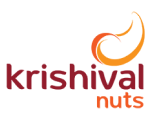

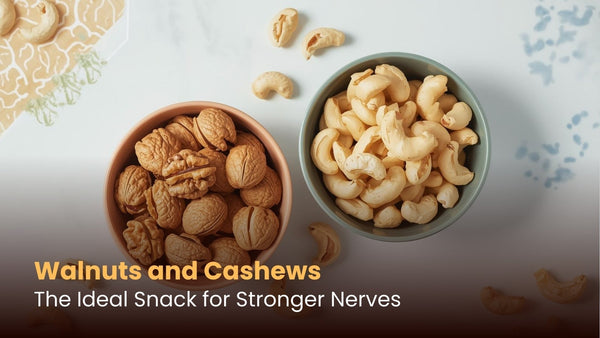

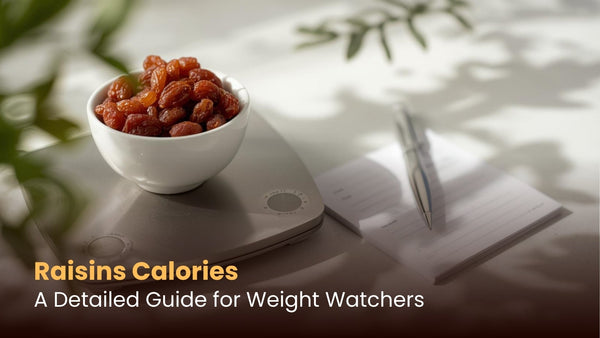




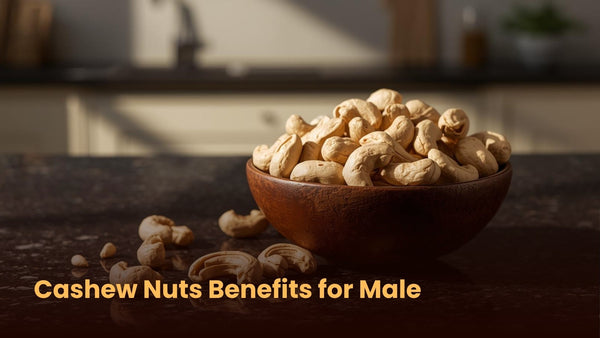
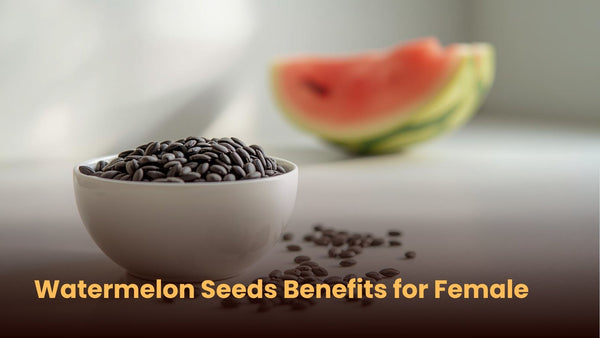
Share Your Thoughts